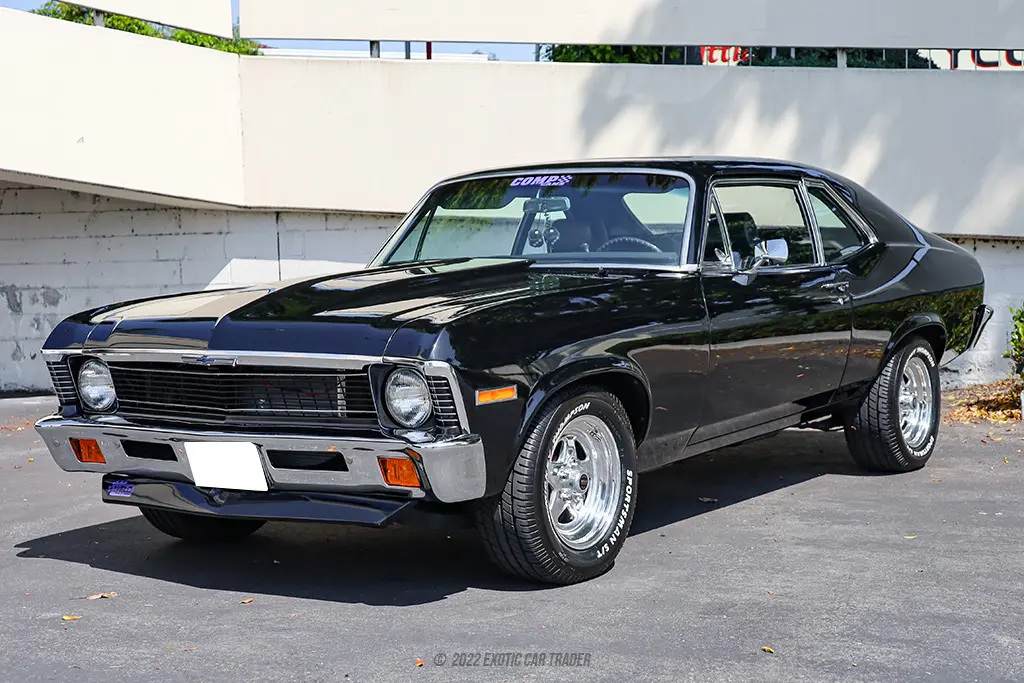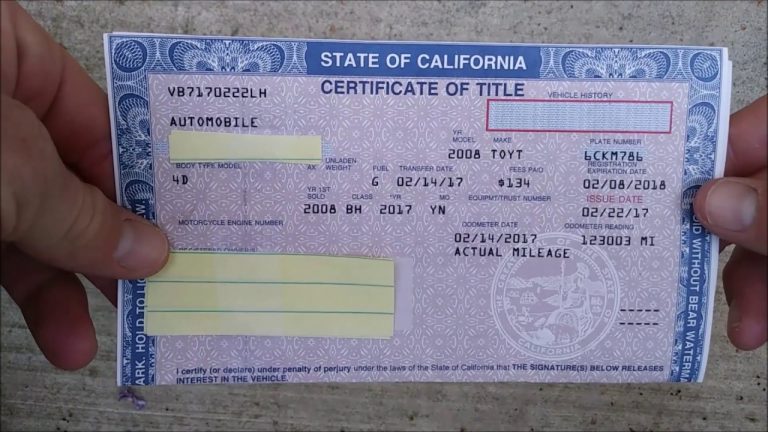What Is A Car Consignment?
Considering selling your used car? You’re not alone. In fact, used car prices saw a surge of over 4% in the early months of 2024 alone. But how can you ensure you’re maximizing your return in this bustling market? Enter car consignment, also known as dealership consignment.
Car consignment is a savvy approach to selling your used vehicle, where you pay a dealer to handle the process on your behalf. But why should you opt for consignment car sales? Are they really the best choice for you? We’re about to take a closer look at what vehicle consignment involves and why it might just be your ticket to a smooth, profitable sale.

What Is A Car Consignment?
Car consignment, alternatively known as dealership consignment, is a process to streamline the sale of used cars. Engaging in this process means paying a dealer to manage the used car consignment process on your behalf.
Rather than dealing with the hassle of selling the vehicle yourself, you entrust it to dealers with expertise in auto sales. Venues that provide this type of service handle the chore of advertising your vehicle, featuring it online or in their showroom, and taking calls or inquiries from potential buyers.
It’s much like consigning collectibles or clothes at a shop. You leave your vehicle with the dealer, they market and sell it, then split the proceeds according to an agreed percentage.
This process adds a level of scrutiny to each vehicle transaction. Notably, consigned cars undergo two vetting procedures—first by the consigner, and then by the potential buyers. This dual verification layer promotes safety and legitimacy, deterring risks to the dealer’s reputation and satisfaction to you, the seller.

Car consignment also embraces specialty markets, such as classic car consignments. These offer unique benefits to the sellers and buyers of classic or vintage vehicles, helping to find the right marketplace to showcase your classic car.
How the Consignment Process Works for Sellers?
The consignment process for selling a car involves several steps designed to take the hassle out of selling your vehicle. Here’s a breakdown of how it typically works for sellers:
1. Research and Choose a Consignment Service
Start by researching consignment shops or dealerships that offer consignment services. Look for reviews, their sales process, fees, and any additional services they offer. Choose one that aligns with your needs and has a good reputation.
2. Initial Meeting and Assessment
You’ll then meet with the consignment service to discuss the terms of the consignment agreement. They will assess your car, considering factors like its condition, mileage, and market demand to estimate a selling price. This is also when you’ll discuss their fees or commission rates.
3. Prepare the Vehicle
Preparing your car to be sold is crucial. This might involve cleaning, making minor repairs, and ensuring all maintenance is up to date. Some consignment services may offer to take care of this for you, potentially for an additional fee.
4. Agreement and Paperwork
Once you agree on the terms, you’ll sign a consignment agreement. This document should detail the estimated selling price, fees, how long they will try to sell the car (consignment period), and other terms of the sale.

5. Marketing and Showcasing
The consignment service takes over the process of marketing your car. This can include taking professional photos, listing the car on various sales platforms, and showcasing it in their showroom or on their lot.
6. Handling Inquiries and Test Drives
The consignment shop handles all inquiries from potential buyers, including scheduling and supervising test drives. This step removes a significant burden from the seller, ensuring safety and convenience.
7. Negotiating the Sale
Once a buyer is interested, the consignment service will negotiate the price on your behalf. Their experience and knowledge of the market can help secure a fair or even better-than-expected selling price.
8. Finalizing the Sale
After agreeing on a price, the consignment service manages the paperwork, including the transfer of title and any other required documents. They’ll also handle the financial transaction, ensuring the payment is processed securely.
9. Payout to the Seller
Once the sale is complete and all paperwork is finalized, the consignment service will pay you the sale proceeds minus their fee or commission.
10. Post-Sale Follow-up
Some consignment services may offer a post-sale follow-up to ensure everything is satisfactory with the sale.
How the Consignment Process Works for Buyers?
The consignment process from a buyer’s perspective involves a series of steps that differ somewhat from buying a vehicle directly from a dealership or through private sale. This process can offer several advantages, such as access to high-quality, pre-vetted vehicles and a more personalized purchasing experience. Here’s how it typically works for buyers:

1. Research Consignment Shops
Begin by researching consignment shops or dealerships that offer consigned vehicles. Look for ones with good reputations, positive reviews, and a selection of vehicles that match your interests and budget.
2. Browse the Inventory
Most consignment shops have online listings of their available vehicles, allowing you to browse their inventory from the comfort of your home. This can include detailed descriptions, photos, and sometimes even virtual tours of the vehicles.
3. Visit the Consignment Shop
Once you’ve identified potential vehicles of interest, visiting the consignment shop in person can provide a better sense of the vehicle’s condition, and you can ask more detailed questions about its history and features.
4. Test Drives
If you’re interested in a particular vehicle, you can arrange for a test drive. The consignment shop will usually handle the scheduling and provide a staff member to accompany you, ensuring the vehicle’s safety and answering any questions you might have during the drive.
5. Vehicle Inspection and History
Reputable consignment shops offer transparency about the vehicle’s condition and history. This might include providing a detailed history report, maintenance records, and information about any past accidents or repairs.
6. Negotiation
Once you’ve decided on a vehicle, you can negotiate the purchase price. The consignment shop acts as an intermediary in this process, conveying offers and counteroffers between you and the seller. Their goal is to find a price that is acceptable to both parties.
7. Financing and Warranty Options
Some consignment shops offer financing options and warranties, similar to traditional dealerships. If you require financing or are interested in an extended warranty, discuss these options with the consignment shop.
8. Paperwork and Payment
After agreeing on a price, the consignment shop will handle all necessary paperwork, including the transfer of title and registration. They will also manage the payment process, ensuring a secure transaction between you and the seller.
9. Vehicle Pickup or Delivery
Once the sale is finalized and all paperwork is complete, you can arrange to pick up the vehicle or, in some cases, have it delivered to your location.
Is Car Consignment Right for You?
Deciding whether car consignment is the right choice involves weighing the advantages against any potential drawbacks and considering your specific circumstances, both as a seller and a buyer. Let’s break it down:

For Sellers
- Convenience: If you prioritize convenience and want to avoid the hassles of selling your car privately, such as dealing with inquiries, negotiations, and paperwork, consignment could be an excellent choice.
- Expertise: Sellers who value leveraging the expertise of professionals to ensure their car is marketed correctly and sold for the best possible price will find consignment appealing.
- Safety: If the idea of meeting strangers for test drives or handling large transactions concerns you, consignment offers a safer alternative.
- Cost vs. Benefit: Consider whether the commission or fee you’ll pay for consignment services is worth the potential higher selling price, convenience, and security. If your car is particularly valuable, rare, or in high demand, consignment might net you a better deal.
For Buyers
- Quality and Transparency: Buyers who prioritize purchasing a car with a known history, condition, and the reassurance that it has been vetted might find consignment to be the right path.
- Unique or Specific Needs: If you’re in the market for a unique, rare, or specific type of vehicle, consignment shops may offer listings that you can’t find in regular dealerships or private sales.
- Financing and Warranty Concerns: For those who appreciate the benefits of dealership-like services, such as financing options and warranties, some consignment shops offer these advantages.
- Shopping Experience: Buyers looking for a more personalized, pressure-free shopping experience might prefer the atmosphere of a consignment shop over a traditional dealership.
Considerations
- Cost: As a buyer, be aware that while you might find competitively priced vehicles, the seller’s consignment fees could slightly inflate the prices. As a seller, weigh the cost of consignment services against the potential higher selling price and convenience.
- Time: Sellers should consider whether the consignment process aligns with their timeline for selling the car. While consignment might lead to a quicker sale due to the dealer’s marketing efforts, it’s not guaranteed.
- Market Knowledge: Both buyers and sellers can benefit from doing a bit of market research to understand the value of the car in question. This knowledge can help sellers set a realistic price and help buyers negotiate more effectively.
Frequently Asked Questions
How do car consignments benefit sellers?
Car consignments lead to hassle-free selling experiences for the seller as they don’t have to negotiate with buyers or worry about documentation. Sellers just have to consign their car to the consignment shop and wait for their returns.
Are car consignments advantageous for buyers?
Yes, buyers can enjoy benefits such as quality assurance and a variety of options to suit their preferences. The consignment model allows buyers to find specific car models swiftly and enjoy an efficient transaction process.
What factors should one consider before opting for car consignment?
Consider the convenience factor, the assured returns, and the ease of process when opting for car consignment. Also, reflect on your personal interests and whether spending time on selling or purchasing a car aligns with those.
How is the payment made in a car consignment transaction?
In a car consignment transaction, the consignment agreement specifies the payment terms. The payment is given to the consignee, who takes a commission or fee, and then the rest is given to the consignor or previous car owner.
What does the increased trend of selling used cars signify?
The increased trend signifies a more economical approach to owning a car. More people are realizing the value in second-hand cars and appreciate the cost-effectiveness and quality assurance offered by the consignment model.
How do car consignments ensure a high-quality selling process?
Car consignments manage all aspects of the selling process, including advertising the car, reaching out to potential buyers, arranging test drives, taking care of the paperwork, and finalizing the deal, ensuring a smooth process for both buyers and sellers.

Hi! I’m Larry Gibbs, studying mechanical engineering with a focus on cars. I really love Ferraris and write blog posts about the latest car stuff. When not studying or blogging, I’m usually on a road trip exploring new places. I also enjoy playing football and watching movies. Life’s an adventure, and I’m all about enjoying the ride!






